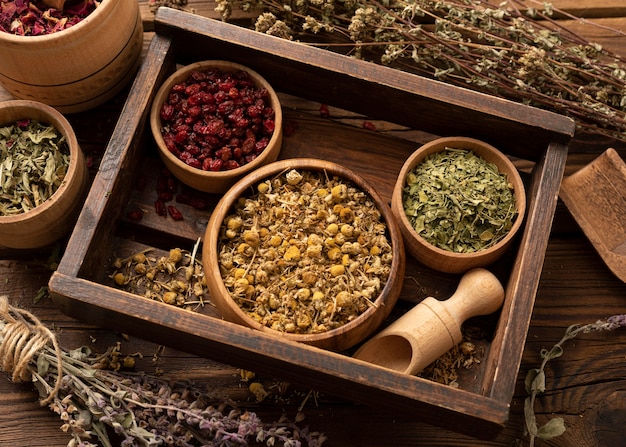Ayurvedic Medicine for Urine Leakage – Holistic Natural Remedies for Incontinence

Introduction to Ayurvedic Medicine for Urine Leakage
Ayurvedic medicine for urine leakage offers a natural, holistic approach to managing urinary incontinence. Rooted in ancient wisdom, these remedies focus on restoring balance in the body’s doshas, strengthening the pelvic floor, and addressing underlying imbalances that may contribute to urine leakage. By incorporating Ayurvedic therapies, individuals can support urinary health and improve overall quality of life with natural methods.
Historical Roots & Ayurvedic Significance
In Ayurveda, maintaining balance among the doshas—Vata, Pitta, and Kapha—is essential for overall health. Urine leakage is often associated with an imbalance in Vata dosha, which governs movement and nerve function. Classical Ayurvedic texts describe natural treatments that support bladder strength, improve nerve function, and promote tissue rejuvenation. These time-tested remedies have been used for centuries to manage urinary incontinence and enhance quality of life.
Key Components & Therapeutic Benefits
Herbal Formulations
Effective Ayurvedic remedies for urine leakage typically include a blend of herbs known for their rejuvenating, strengthening, and nerve-calming properties. Commonly used ingredients include:
- Ashwagandha (Withania somnifera): Renowned for its adaptogenic and rejuvenating effects, it helps strengthen the muscles and supports nerve health.
- Shatavari (Asparagus racemosus): Known to nourish the reproductive and urinary systems, aiding in tissue regeneration and moisture retention.
- Gokshura (Tribulus terrestris): Supports urinary tract health and helps tone the pelvic muscles.
- Vidarikanda (Pueraria tuberosa): Traditionally used to improve muscle tone and support the nervous system.
- Licorice (Glycyrrhiza glabra): Helps soothe inflammation and supports tissue healing.
Detoxification & Dosha Balancing
Ayurvedic treatment for urine leakage involves detoxifying the body of accumulated toxins (ama) and balancing the aggravated Vata dosha. By restoring internal balance, these remedies help improve nerve conduction, muscle strength, and overall bladder control. Incorporating dietary modifications, such as warm, easily digestible foods and adequate hydration, further supports these therapeutic effects.
Support for Pelvic & Urinary Health
Regular use of Ayurvedic formulations can enhance pelvic muscle tone, reduce nerve-related dysfunction, and promote tissue rejuvenation. This multifaceted approach not only addresses the symptoms of urine leakage but also works to improve the underlying health of the urinary tract, offering a natural path to better bladder control.
How Ayurvedic Remedies Work: The Science Behind the Approach
The efficacy of Ayurvedic treatments for urine leakage lies in the synergistic action of their herbal constituents. The bioactive compounds in these herbs help to:
- Strengthen Nerve Function: By calming and balancing Vata dosha, these remedies improve nerve communication and muscle control.
- Enhance Tissue Regeneration: Nutrient-rich herbs promote the repair and regeneration of pelvic tissues.
- Reduce Inflammation: Anti-inflammatory properties of certain herbs help soothe irritated tissues and reduce discomfort.
- Promote Detoxification: The cleansing actions support the elimination of toxins that may impair normal urinary function.
This comprehensive mechanism addresses both the symptoms and root causes of urinary incontinence, fostering natural healing and improved bladder control.
Choosing the Right Ayurvedic Remedies & Guidance
When considering Ayurvedic medicine for urine leakage, it is important to:
- Consult Certified Ayurvedic Practitioners: Personalized treatment plans based on your unique constitution (Prakriti) ensure safe and effective care.
- Select Quality Herbal Formulations: Use products prepared with authentic, organic herbs to maximize therapeutic benefits.
- Adopt Complementary Lifestyle Changes: Incorporate dietary modifications, pelvic exercises (like yoga), and stress management techniques to support the treatment.
Recommended Dosage & How to Use Ayurvedic Remedies
Dosage and usage vary depending on individual health needs and practitioner recommendations. Generally:
- Dosage Guidelines: Remedies may be administered as herbal powders, tablets, or decoctions. Dosages are carefully adjusted to ensure safety and efficacy.
- Method of Consumption: Oral administration with warm water or herbal tea is common. In some cases, topical applications or external therapies such as medicated oil massages may complement internal remedies.
- Professional Oversight: Always adhere to the guidance provided by a qualified Ayurvedic practitioner to tailor the treatment to your specific condition.
Potential Side Effects & Precautions
While Ayurvedic treatments for urine leakage are generally safe when used appropriately, some precautions include:
- Monitor for Allergic Reactions: Some individuals may experience mild digestive discomfort or skin reactions. Discontinue use if adverse effects occur.
- Individual Health Conditions: Those with chronic health issues or on other medications should consult their healthcare provider before beginning any new treatment.
- Avoid Overuse: Strict adherence to prescribed dosages is important, as excessive use may lead to imbalances or other side effects.
Frequently Asked Questions for Ayurvedic Medicine for Urine Leakage
How do Ayurvedic remedies help with urine leakage?
Ayurvedic remedies work by balancing the Vata dosha, strengthening pelvic muscles, and promoting tissue regeneration, which together improve bladder control and reduce urinary incontinence.
Which herbs are commonly used in these treatments?
Key herbs include Ashwagandha, Shatavari, Gokshura, Vidarikanda, and Licorice, known for their nerve-calming, rejuvenating, and anti-inflammatory properties.
How long does it take to see results from Ayurvedic treatments for urine leakage?
Results vary by individual. Many patients notice gradual improvement over several weeks to months, with consistent use and complementary lifestyle adjustments.
Can Ayurvedic treatments be used alongside conventional therapies?
Yes, many patients benefit from an integrative approach. It is important to coordinate with both Ayurvedic and conventional healthcare providers to ensure safe and effective treatment.
Are there any dietary changes recommended during treatment?
A balanced diet that avoids processed foods, emphasizes warm and easily digestible meals, and includes adequate hydration can support the healing process and enhance the effects of the remedies.
What precautions should be taken when starting these treatments?
Always consult a qualified Ayurvedic practitioner to tailor the treatment to your needs, monitor for any adverse reactions, and follow dosage instructions carefully.
Where can I find authentic Ayurvedic remedies for urine leakage?
Authentic formulations should be sourced from certified Ayurvedic pharmacies or trusted practitioners who adhere to traditional preparation methods and quality standards.
Conclusion & Expert Insights
Ayurvedic medicine for urine leakage offers a natural and holistic pathway to improve urinary health and bladder control. By focusing on dosha balancing, nerve strengthening, and tissue regeneration, these traditional remedies address both the symptoms and underlying causes of urinary incontinence. With professional guidance and a supportive lifestyle, individuals can experience improved urinary function and enhanced overall well-being, paving the way for a more balanced and confident life.
References & Further Reading
- Sharma, P.V. (1995). Ayurvedic Healing: A Comprehensive Guide.
- Lad, V. (2002). Ayurveda: The Science of Self-Healing.
- National Institute of Ayurveda:
- Journal of Ayurveda and Integrative Medicine for contemporary research on herbal therapies and urinary health.
Got any more questions?
Ask Ayurvedic doctor a question and get a consultation online on the problem of your concern in a free or paid mode.
More than 2,000 experienced doctors work and wait for your questions on our site and help users to solve their health problems every day.



